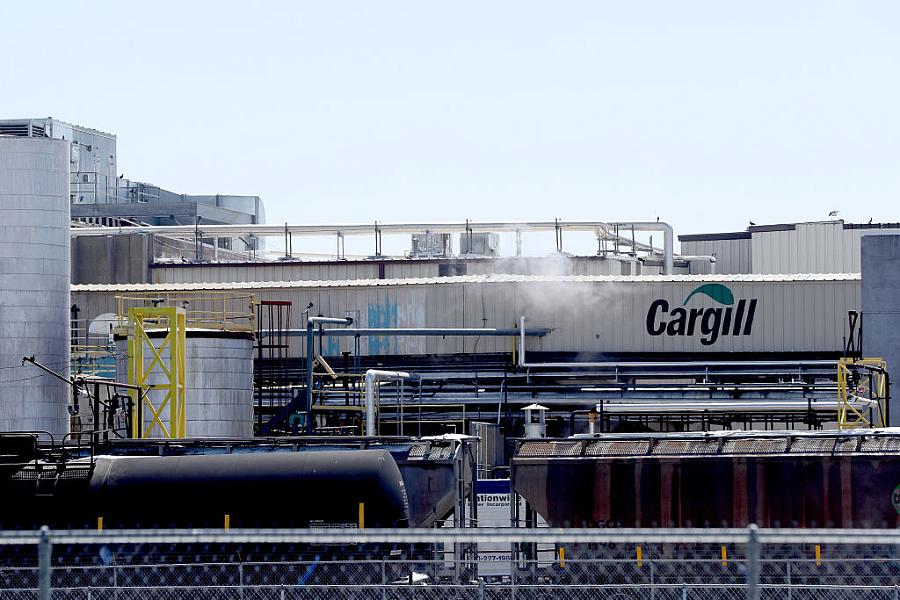The pandemic is devastating Black and undocumented workers at Mississippi chicken plants

(File photo by Matthew Stockman/Getty Images)
Lakisha Wheaton was working on the debone line at a poultry processing plant in Mississippi in April when she began to get a splitting headache.
While most of Mississippi’s economy was shut down because of the global pandemic, Wheaton and other chicken plant employees continued to go to work at their essential jobs. At least for a few weeks, however, they worked without protective measures and some employees reportedly came to the plants while experiencing COVID-19 symptoms.
Wheaton left her shift at Koch Foods early after getting a headache and went to the doctor. Four days later, she learned she had the coronavirus. Worse yet, her two young daughters had also contracted the disease.
“It’s not right with the way they have it going, working in the conditions… (We’re) risking it more with bringing it home to my family,” Wheaton said.
Dozens of workers have been falling sick at a time, and more are too afraid to come to work, according to union representatives whose organizations represent chicken plants in Mississippi.
At the same time, state leaders denied that there were outbreaks at chicken processing plants, instead blaming the spread of COVID-19 among workers on their living situations and transportation choices.
It’s hard to overstate the importance of the poultry industry to Mississippi. It’s the state’s largest agricultural commodity, bringing in hundreds of billions of dollars of sales annually, and in recent years Mississippi ranked top five in the nation for chicken production in the country.
By extension, the employees that work the dirty, difficult and low-paying jobs at chicken plants —many of whom are Black, like Wheaton, or Latino and undocumented — are vital to the state’s economy and the nation’s food supply chain.
Rhoda Labey, who is Black, also got sick while working at Koch Foods with Wheaton said she doesn’t believe the companies were doing enough to protect their workers.
"We don’t want to be sick. This is how we survive. We have to work here every day to get by. It's profit over people there," Labey said.
While Black and Latino workers have disproportionately born the toll of the pandemic in Mississippi and across the country, they have unequal and sometimes nonexistent access to resources that could help them.
The Clarion Ledger will explore the COVID-19 pandemic’s outsized impact on communities of color through the perspectives of Black and Latino chicken plant workers.
The project, reported under the auspices of the 2020 National Fellowship, will look at what role racism, systemic inequalities and trauma plays in health outcomes in Mississippi, the last state in the country to remove the Confederate battle emblem from its flag just last month.
There is a sad irony in undocumented workers being labeled essential and putting their lives at risk by continuing to work through the pandemic, observed Father Odel Medina, who pastors a Catholic church in Carthage, which has a large Latino population.
“You say these people have to go … because they don’t belong here. When we need them, we tell them they’re essential. That is very immoral,” Medina said.
Nearly one year ago, U.S. Immigration and Customs Enforcement raided seven chicken processing plants across Central Mississippi and arrested 680 undocumented workers in what became the largest single-state workplace raid in U.S. history.
The raids tore families apart and left hundreds without jobs and trapped in place while they awaited court hearings. The process of rebuilding was disrupted when the pandemic hit, creating a second disaster for undocumented families. Community leaders and organizers report many people were afraid or unwilling to seek professional medical help even as they got sick because of a distrust of authority that stemmed from the raids or because they didn’t have the money to pay for a hospital visit.
These families have also struggled to access mental health care. Counseling services are limited for all rural Mississippians, and even more so for immigrants, many of whom speak indigenous Mayan dialects as their first language. Parents and community leaders are particularly worried how untreated and compounded traumas will affect the health and development of children and wonder if the road to recovery will take not years, but generations.

